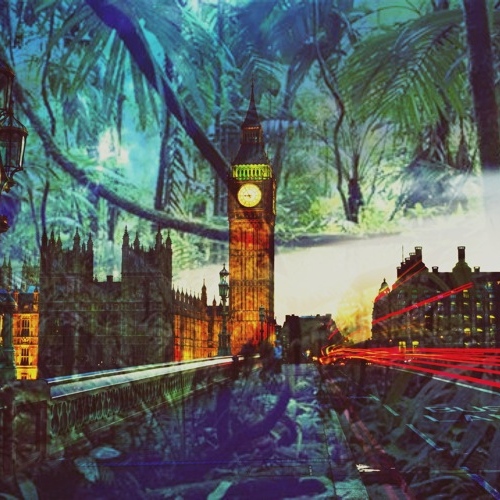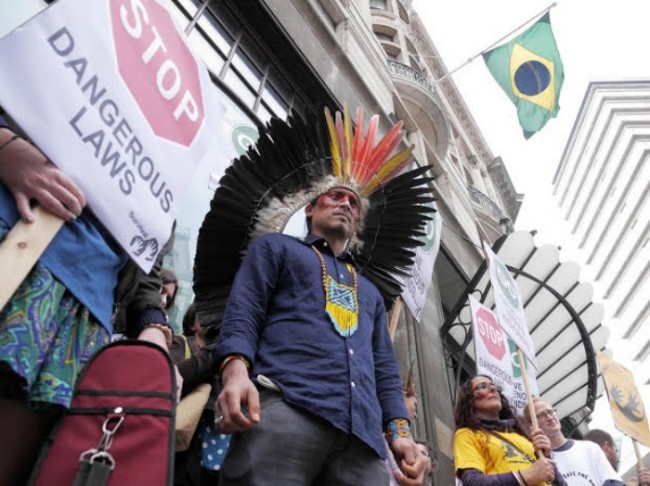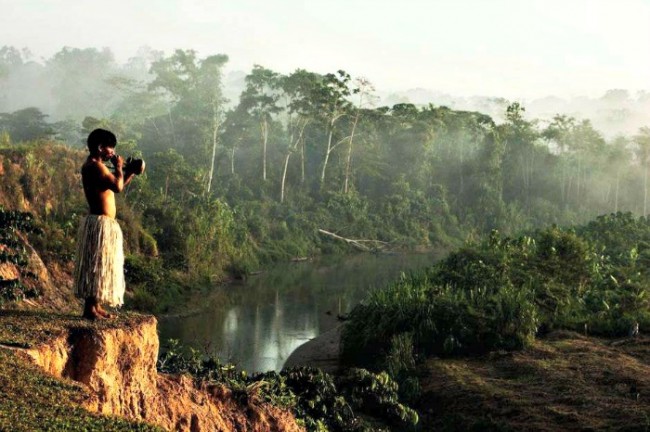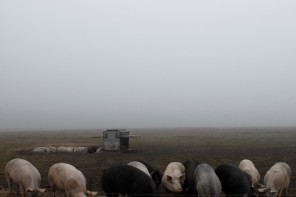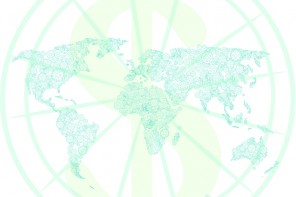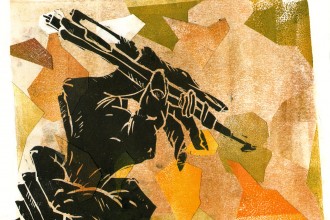Nixiwaka Yawanawá, born in the Amazon Rainforest into the Yawanawá tribe, pursued his father’s dream to learn English so he could fight for the rights of indigenous people worldwide. Today, working with the charity Survival International, he has since moved to London and lives with the dichotomy of firmly believing in the preservation of his ancient traditions, whilst integrating with the Western culture that has historically threatened the existence of his people, to help protect the rights of indigenous peoples.
I closed my eyes in my tribe, and, when I opened them again, I was in London. It was hard leaving my family to go somewhere very far away, not knowing what it would be like. I had always wanted to work for the protection of my people and for the rainforest. Tribal peoples need support and protection and that’s what I have chosen to work for.
For too long, we indigenous peoples have been struggling to secure our rights to our lands across the country. Finally, in 1988, our right to the land, culture, creeds, and social movement was enshrined in the Brazilian Constitution. But our human rights continue to be violated, putting our lives, identity, and culture in danger.
Uncontacted tribes are the most vulnerable societies on the planet, and Brazil is home to more uncontacted tribes than anywhere else on the planet, totalling over one-hundred groups. Entire populations are being wiped out by violence from outsiders who steal land and resources and bring diseases, like flu and measles, to which tribespeople have no resistance.
Recently, an uncontacted group of Indians from Peru was forced to make contact with a settled, indigenous community in the state of Acre, Brazil because illegal loggers in Peru continue destroying their forest very fast.The majority of old people were massacred by non-Indians in Peru, who shot at them with firearms and set fire to their houses. They say that many elders died and that they buried three people in one grave. So many people died that they couldn’t bury everyone, and their corpses were eaten by vultures.
Powerful interests in politics are against our existence and seek our land like hungry ghosts. They want our land for “development,” mining, dams, cattle, and industrial projects. The World Cup, for us, was an opportunity for us to show the international community our struggle and how we are being treated by our government. It is difficult to get the world’s attention, so we must go to the street and shout to be heard. The prejudice and racism is very strong in Brazil. We’re not “backwards” or “primitive.” We simply live harmoniously and freely within our society.
We are just living differently, that is all. It’s a good way of life for us tribal peoples and this choice must be respected. Luckily we have many good friends with a good heart both in and outside Brazil. Without their support, we would all be dead or living in poverty, begging for coins on the streets.
One thing that I highlight in my talks is for people to understand our way of life and respect us as human beings. We contribute immensely to the natural environment, ensuring a safe way of life which can last forever without pain and illness. That is what the industrialised societies can understand and learn from us, how we live.
A big concern today is the threat global warming, and its impact would devastate humankind. We can help to control it. We look after nature, and she looks after us. We have a strong connection with nature. This is how I see it: the destruction of our rainforests is terrible because the forest is alive. It is our life and the animals’ lives. We don’t separate our existence from it, we are all one body and one being: the plants, water, trees, and the Yawanawá. When we see harm come to the rainforest, it is as if our own body has been hurt. It feels like an illness that rises up in us and needs to be cured.
I was born in the forest and had the chance to live in the town. When I went back to the tribe, it was different, like I reconnected again. That feeling filled my heart, and I felt complete. The silence, the songs of birds and animals, touch my heart, and I feel a great energy. I love that silence, even though it’s not really silence, in a literal sense. There is something greater that I cannot put my finger on. You feel at peace and free. Nature is beautiful.
Before we were contacted by the outsiders, our ancestors said everything was good. We had no problems in our homeland. After the contact, everything changed in the blink of an eye. The first contact—around 200 years ago—greatly impacted our culture. The Yawanawá language was nearly lost, and today we speak two languages: Portuguese and Yawa. Our spiritual practices, such as using our sacred drink Uni to connect with our ancestors (known as Ayahuasca), were banned by the missionaries as “practices of the devil.”
For generations, as part of our identity, we’ve always practiced our spiritual beliefs. But after westerners, and later missionaries, contacted us, we were forced to stop our traditions and spiritual beliefs; otherwise, we were told that we, the Yawanawá, would suffer for the rest of our lives and end up in Hell.
I come from a shaman’s family. The natural medicine opens a portal to another dimension—it’s a magical and healing process. It can be considered as a drug for many people, but, for us, it’s a door to the light. You see yourself, your family, and the beauty of nature. It’s difficult to describe; you need to feel it. Through the experience, we learn about understanding, about respect, love, and harmony. This is not the same for every person, it changes and the experience can be a surprise. We have shamans who teach and look after us. They know everything about the medicinal plants. The forest is our garden where we find all we need.
If people only destroy, especially nature, we will all suffer a phenomenal catastrophe. If people only destroy, what would be the consequences? We want to keep our rainforest for our future generations, we know that if they have it, they will be safe.
If we tribal peoples have our land, we have our freedom. Land is our home, it is our life.

